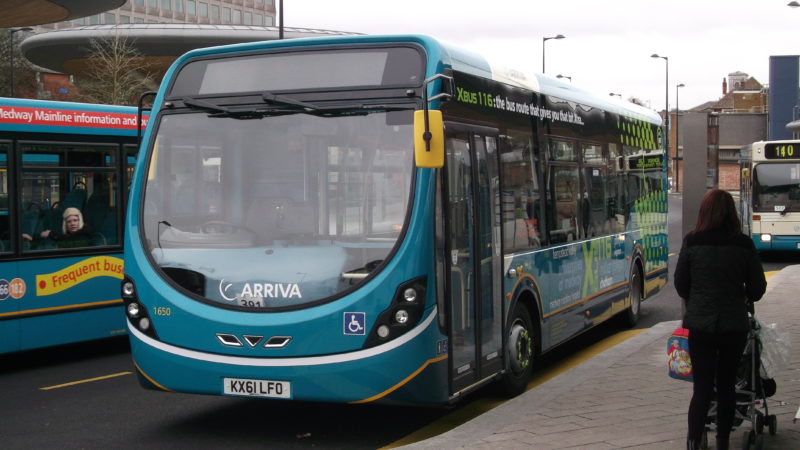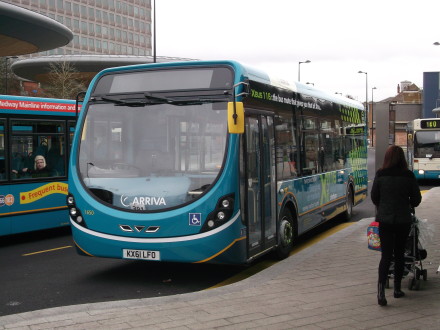

People protest about many things, and rightly so, but I don’t see enough people getting angry about what is happening to our buses. We should all be angry, very angry, not least because of the impact poor public transport has on making already vulnerable people’s lives even harder. What’s been happening to buses under this Government is symptomatic of what’s going on elsewhere across many other departments. That’s a lack of foresight, thoughtless short-termism and the implementation of irresponsible, frankly cruel cuts that are making life much harder for so many people across the country.
The Government claims to be committed to localism. They say decisions about funding to support local bus services are best made at local level. I strongly believe that local communities should have power over their bus services. There was a 37 per cent reduction in central government funding to English local authorities between 2010/11 and 2014/15. Since 2010 70 per cent of local authorities – stuck between a rock and a hard place – have cut funding for bus services. When local authorities face funding cuts this severe, their decisions have really already been made for them. After all, buses don’t run on magic beans.
Some areas have been worse affected then others – particularly rural communities. The Government passes the buck and forces councils to take the blame for these deep cuts to bus routes and services, whilst keeping their own hands clean. Giving localities power with one hand while taking funding away with the other means the Government’s promises amount to a lot of hot air. It is cuts that are being devolved to local government, not services.
What makes these cuts to bus services even more worrying is that, like so many of this Government’s policies, they disproportionately and unfairly target certain groups of people in our society. Almost half of the poorest households in this country do not have access to a car. People in the lowest income group use the bus almost four times more often than those in the highest income group. For people who don’t own or have access to a car, for people who can’t afford a taxi or a train, the bus is a vital lifeline, connecting them to shops, schools, jobs, and health services.
In many cases cutting a bus route means cutting someone off from a way to make a living, to contribute to society and to put food on the table. Indeed over three quarters of unemployed people don’t have access to a car, van or motorcycle, and around 40 per cent of job seekers said lack of personal transport, or inadequate public transport, was a key barrier in preventing them from getting a job. A quarter of unemployed 18-24 year olds find the cost of the bus to be a barrier for finding a job. The Government constantly rabbits on about boosting productivity and rewarding the hardworking. Yet rising bus fares alongside declining bus services mean those who desperately want to get to work, can’t. Current policy means jobseekers are also required to search and apply for jobs within a 90-minute travel radius. It’s a catch 22 – those without jobs can’t afford the bus but they need to use a bus to find a job. How does the Government think people get to job interviews and jobs if they can’t afford the bus fare, or if buses no longer even operate in their area? It’s nonsensical, it’s nasty – and it’s sadly unsurprising.
As well as cutting off the unemployed and those on low incomes from jobs, bus cuts mean those who can’t afford a car also experience difficulty getting to a doctor or a hospital. In 2013 just a third of hospital users had reasonable access to key services by public transport or walking. As we’ve come to expect under this Government, the problems are worse in rural areas. In a number of rural districts across England fewer than 60 per cent of households without a car are able to access a hospital within an hour by public transport.
The facts are clear and simple, whatever the Government’s rhetoric. There are now more passenger journeys in the capital than in the rest of England combined. Bus fares are the highest they have ever been. And the poorest in the society are the worst affected by cuts to buses. The Government’s smoke and mirrors can’t conceal these facts, try as they might, and we’ll be watching closely to see how bus funding is affected in the upcoming spending review. Being able to get to work, to visit friends and relatives, and get to services at reasonable cost and in a safe and environmentally sustainable way are at the core of Labour’s vision of a decent society. The danger with the current Government is that they will allow local transport systems to decay, with whole swathes of the country inaccessible by bus – dreadful for those without cars, socially unjust, environmentally damaging, and quite unnecessary in a country perfectly capable of maintaining a decent transport system.
Daniel Zeichner MP is a Shadow Transport minister




More from LabourList
Almost half of Labour members oppose plans to restrict jury trials, poll finds
‘How Labour can finally fix Britain’s 5G problem’
‘The University of the Air – celebrating 60 years of Harold Wilson and Jennie Lee’s vision’